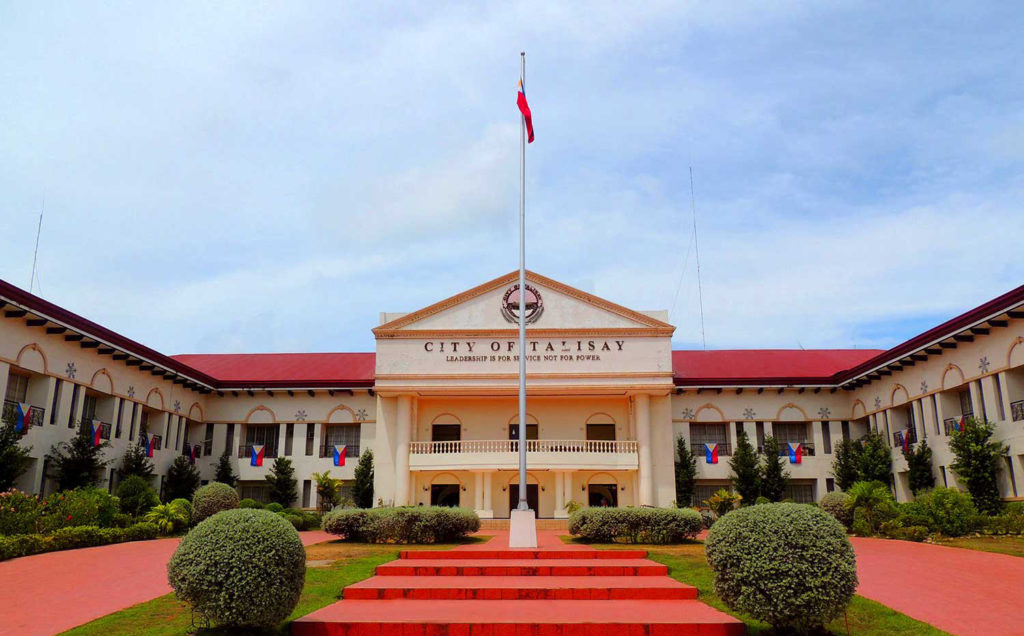Police looking into reports that these officials get protection money from drug lords
Some elected officials in Talisay City, southern Cebu were reportedly under the payroll of different drug groups.
This was the intelligence report being validated by the Cebu Provincial Police Office (CPPO).
Senior Supt. Manuel Abrugena, director of the CPPO, on Monday said the illegal drug trade in the city continued to thrive despite successive police operations since some drug personalities received protection from these local officials.
“We will not reveal their names yet since we are still validating the information,” he said in an interview.
He also begged off from giving other details about them.
In his visit to Cebu last August, President Duterte described Talisay as a “hotbed” of illegal drugs.
Abrugena said the Provincial Intelligence Branch was tasked to gather evidence against the local officials who received money from drug syndicates. He said they also coordinated with the Commission on Elections (Comelec) to monitor candidates in next year’s polls whose campaigns were believed to be financed by drug syndicates.
Cebu Daily News tried to get the comments of Vice Mayor Allan Bucao and Rep. Gerald Anthony “Samsam” Gullas Jr. of Cebu’s 1st district which includes Talisay, but both did not answer calls as of 7 p.m. on Monday.
Talisay City Councilor Antonio Bacaltos Jr., for his part, welcomed the police investigation, saying he too wanted to get rid of the narcotics problem in the city.
“For sure, I will be one of those who will rejoice if our illegal drug problems here in Talisay will be done with,” he said in a text message.
Supt. Marlu Conag, Talisay City Police chief, said they had not received reports about local officials accepting drug money.
But so far, he added, local executives had been supportive of the police’s campaign against illegal drugs and were eager to clear their areas of illegal drugs.
The Philippine Drug Enforcement Agency (PDEA) earlier identified former Barangay Captain Marc Ferdinand “Dindin” Bas of Lagtang, Talisay City as among the alleged drug protectors in the country.
Bas was found dead inside a rented house in the town of Sibonga, southern Cebu, on Oct. 8. Witnesses told the police that they saw armed men storming inside the house and heard bursts of gunfire.
Three months before his death, his son, Barangay Councilor Art Stephen Bas, was shot dead in what the police suspected to be a case of “mistaken identity.”
Art was allegedly mistaken for his father because he was on board the elder Bas’ car when he was ambushed at the South Coastal Road in Talisay City on July 20.
Chief Supt. Debold Sinas, director of the Police Regional Office in Central Visayas, earlier said money from the illegal drug trade was expected to flood the Central Visayas provinces of Cebu, Bohol, Negros Oriental and Siquijor to finance the campaign of some politicians seeking elective posts in next year’s elections.
He said the illegal drug supply in Central Visayas was also expected to increase in the coming days with the 2019 midterm elections just around the corner.
Sinas based his assumptions on past experiences which showed that illegal drug groups had funded election campaigns in the country.
Drug personalities, he added, would be releasing huge sums of money to finance the candidacies of politicians who could protect their illegal activities.
“We expect that because (during) elections, everybody needs funds,” he said.
“Sometimes naa mga politicians nga modawat pero wa siya kabalo nga sa drugs diay to (Sometimes there were politicians who accepted money not knowing that the funds came from illegal drug proceeds),” added Sinas.
He pointed out that drug dealers would find government officials who could serve as their protectors so that they could continue their illegal operations.
Sinas said the police would monitor the activities of all candidates to ensure that money from narcotics’ groups would not be used to fuel campaigns.
He admitted that it would be difficult for the police to determine who among the politicians received drug money.
But with the help of other government agencies, Sinas said they would be able to at least minimize funding from illegal drug groups in the region.
